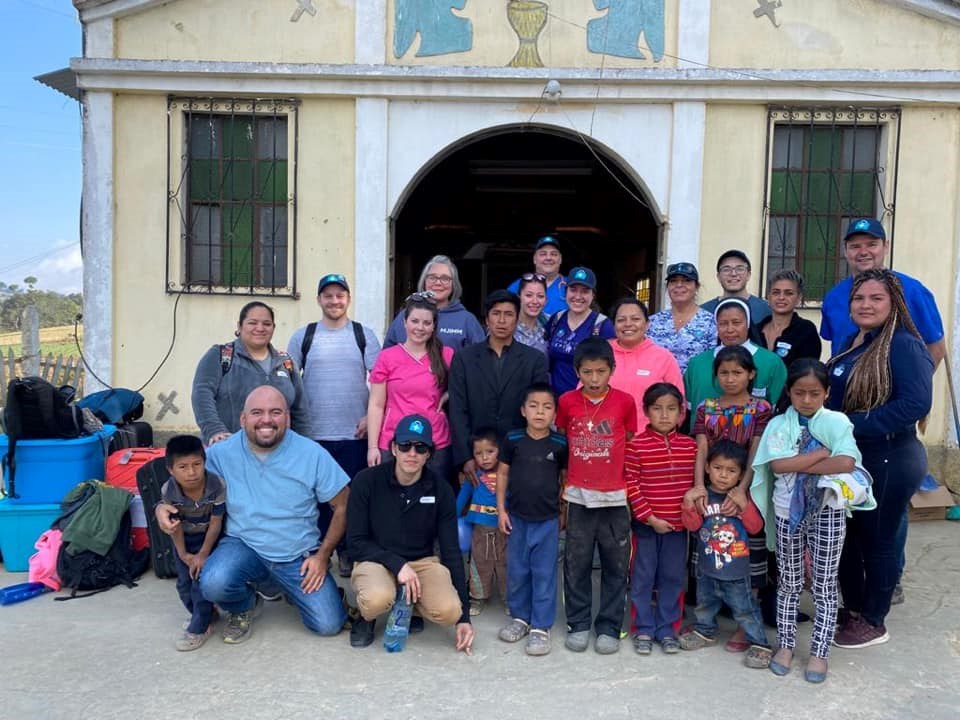Health-care professionals from Moose Jaw and across Western Canada will soon return to Central America for the first time since 2020 to provide medical services for residents — and could use extra financial support.
The Moose Jaw International Medical Mission (MJIMM) team has been travelling to Patzun, Guatemala since 2014 to help residents living in extreme poverty. It started with seven people and has grown to 34; this year, 39 are going.
The team — doctors, nurses, surgeons, anesthesiologists, gynecologists, other medical professionals and tradesmen — completes major operations and installs stoves and water filtration units in homes. It also conducts community clinics and teaches women about menstrual hygiene.
This year, MJIMM members will be in Guatemala from Feb. 3 to 11.
To financially support the mission, visit bridgesofhope.ca.
“We’re so excited to get back there. There are some returning members that are coming and we also have a lot of new team members that have joined the team for this mission,” said Jackie Wilson, a registered nurse in the operating room at the Dr. F.H. Wigmore Regional Hospital and a trip co-ordinator.
“It’s fun seeing the new people get excited about this. And I love watching them experience it while we’re down in Guatemala,” she continued. “But for lots of us that are returning members … we maybe see the deep need that happens there. And we’re just trying to bring the right cohort of people to maximize how efficient we can be down there.”
This will be the sixth time that MJIMM has travelled to Guatemala, while this will be Wilson’s seventh time. The 20-year nurse was “hooked immediately” after her first visit because she saw how much residents needed additional medical treatment.
The last time team members were there was in February 2020. They completed 41 operations, installed 46 stoves and water filters, saw more than 573 patients in homes and clinics in rural villages, and provided health education and handmade washable menstrual kits to over 500 women.
Then COVID-19 struck, which sidelined the team for two years. Since then, members have been waiting for restrictions to lift so they can travel again, Wilson said. However, they didn’t want to leave the health-care system short-handed in the middle of a pandemic.
The main issue the team will face is long patient waiting lists because residents have been unable to access surgical services, she continued. People only receive treatment when a surgical team — from anywhere — visits them.
“I know they are so desperate for us to come … ,” said Wilson.
Another challenge MJIMM is facing is funding. The pandemic prevented the team from holding in-person fundraisers, while it is now reaching out to past supporters — some continued to give during the pandemic — via email.
The team raised $45,000 in 2020, but because three surgical teams are going this year, it needs $55,000.
Besides Moose Jaw, medical professionals are also coming from Prince Albert, Regina, Gravelbourg, Assiniboia, Macklin, Alberta and British Columbia.
“There is a nursing shortage, so we really looked for people across Western Canada to ensure we don’t leave any departments extra stressed,” said Wilson.
All members use their vacation time to visit and are not paid. Instead, they donate their own money to the trip.
“I find it extremely rewarding to use my nursing skills to help those who otherwise would not get the help they need,” she continued.
While two surgical teams completed 41 operations in 2020, MJIMM expects to complete about 60 operations this year because it is sending three surgical teams.
Members will work “extremely long” hours while there, Wilson said. They will start at 6:30 a.m. and work until about 10 p.m. Guatemalan nurses will monitor patients overnight, then the process starts again the next day.
The surgical teams will most likely fix huge, disabling hernias because residents work hard to support their families, and remove many gallbladders, she continued. Members will also provide gynecological services — including hysterectomies and other surgeries — because women there produce many babies.
“It’s such a life-changing thing for women to have that because it can be super-disabling for them to have these chronic pains or issues … or are bleeding a lot,” Wilson said.
The surgeries are “the most fun” because members meet many people with no hope for relief from their pains, she continued. But after residents learn their issue can be addressed, they are joyful knowing this life-changing action can help them function again and support their families.
Residents are appreciative, thankful and humbled for the team’s efforts, while they also thank God for answering their prayers, Wilson added. Families are also thankful for the team’s work.




